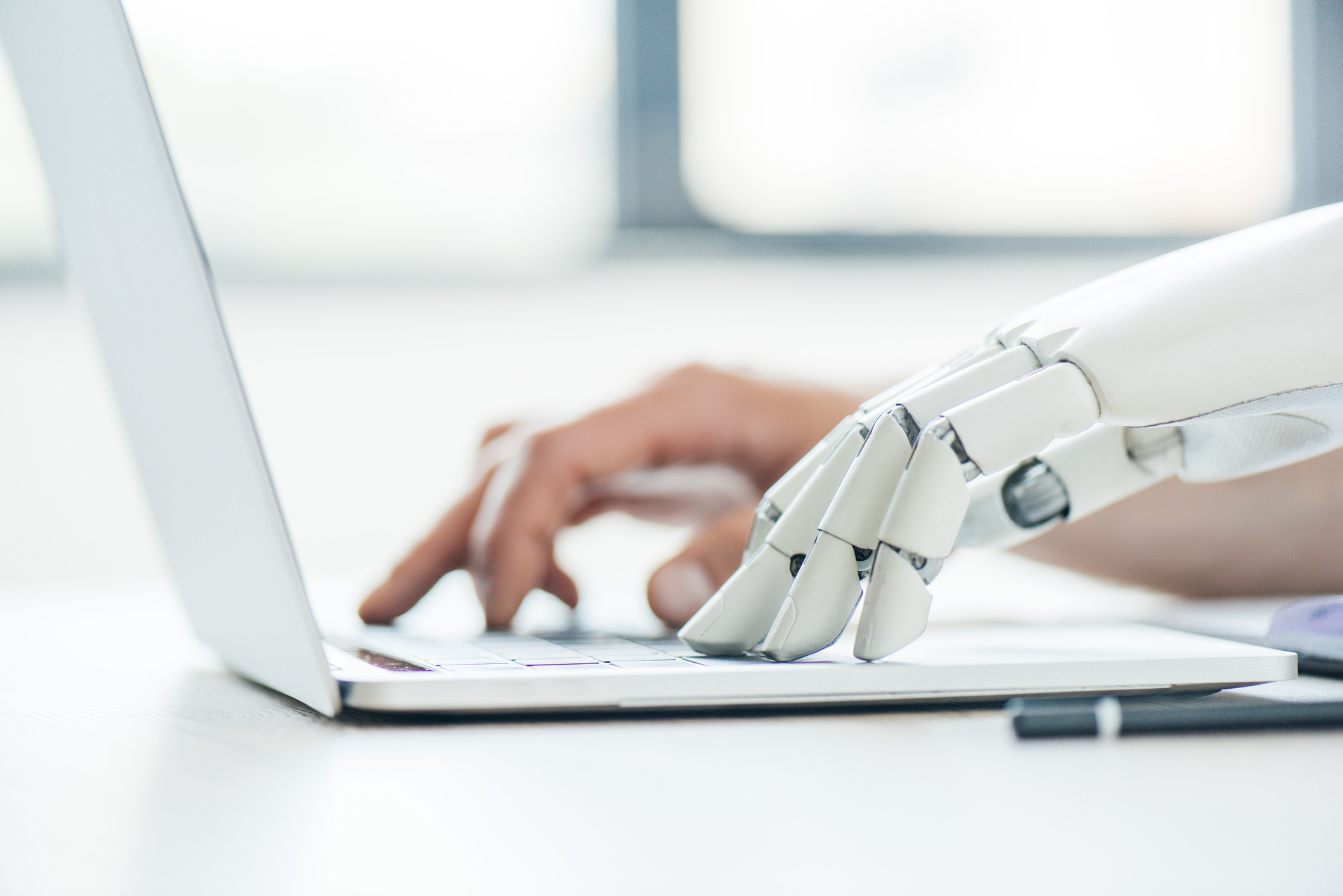AI, automation, and machine learning aren’t here to take our jobs – they’re here to make our jobs better! Not only is this tech set to create more than 97 million new jobs globally by 2025. There’s no getting away from the fact that AI will change jobs and even make some redundant, but the fact is that the value that human beings bring to the workplace will never go out of date. Here’s why – and what the future of work will look like.
You’re great at things AI can’t do
AI and related technologies have what is known as narrow intelligence. That means they can analyse data and perform a task based on the parameters you set – for example, automatically onboarding new clients or detecting a cybersecurity or equipment maintenance issue. However, they can’t apply this intelligence outside this box, so critical inabilities of the tech include the ability to:
- Perform complex strategic planning
- Do precise hand-eye coordination
- Deal with unknowns outside their parameters
- Apply common sense or think creatively
- Apply empathy
And let’s face it – those are things that every single operation requires at every level and in every sector, from customer service to social work, law, teaching, and even AI development!
The more AI tech we use, the more people we need
It’s best to think of AI tech in the same way you did the introduction of computers. Sure, it meant you needed fewer people to write up, file, or type records, but it’s not like we don’t still need all those people today. It just made the (quite frankly) boring and time-consuming tasks easier. It also meant that millions of roles opened up in the IT industry – programmers in hundreds of fields and languages, designers, security specialists, and entire businesses.
Similarly, AI is set to take on routine tasks in all industries, automatically running recruitment programs, cybersecurity, manufacturing lines, supply chains, and customer service queries. At the same time, humans are still needed to evaluate job candidates, solve complex data breaches, set supply chain processes in action, and provide personal service to customers and clients.
Your job isn’t going away – instead, you’re going to be doing more high-value work and less routine, boring work.
AI as a job engine
Automating run-of-the-mill work processes and introducing AI into the business world is going to draw more people into valuable work than ever before, even in areas where the highest impact will be seen on individual jobs.
For example, jobs most likely to be impacted by AI and related tech include accountants, forensic scientists, technical writers, MRI operators, geological technicians, dietitians, financial specialists, web developers, loan officers, administrators, HR personnel, medical secretaries, sales, and customer service representatives. But these are the areas where the most growth will happen too, thanks to the same technologies.
We’ll need trainers who can train AI systems to perform certain tasks in these roles effectively, people who will be able to audit these tasks, ensure that they are being performed effectively and ethically without bias, and people who can spend more time on strategic and complex issues that add true value to the workplace.
Let’s take sales as an example. A significant amount of time is used by every salesperson trying to find customers that are interested in their product, trying to detect opportunities, and fighting for market share. Now, put AI in place to pull insights from the massive data streams sales generate through global, regional, and local consumer behaviour.
This pushes out actionable insight not only into who is buying your product (or your competitor’s) and who is an opportunity for a sale based on their general consumer data, but also exactly how to sell to them. This means more time selling and making more money – so it’s a win, win!
In another example, let’s take factory workers on a production line. With AI, intelligent sensors run quality control, send defect alerts, provide purchasing forecasts, and more. But factory workers aren’t really losing jobs as a result – they’re moving into more specialised and higher-paying positions. After all, technicians are needed in higher numbers to keep smart factories running, strategic thinkers are needed to help interpret and apply the data the systems collect, and people are needed to develop new strategies, production line improvements, custom products, and more.
And honestly, that brings a lot more excitement and investment into a role, as well as upskilling you in a changing world.
Develop your AI and automation strategy
Every industry can benefit from a strategic AI and automation solution, but there are a lot of products out there to sift through. At Otto, we’ll help you put this tech trend into action, helping lead your project, getting stakeholder and employee support, and aligning best-case solutions with your goals.



